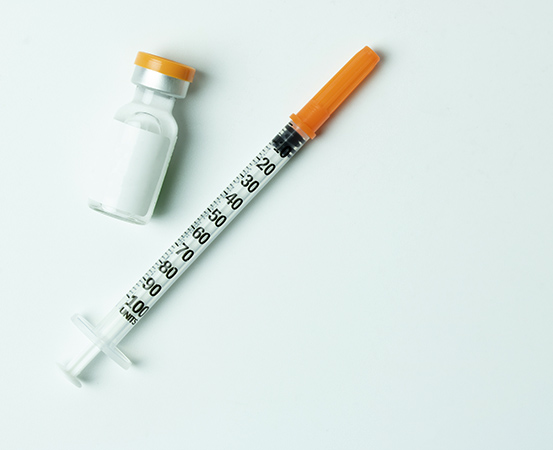
As temperatures soar in summer and the heatwaves continue, storing insulin vials can get tricky for people with diabetes. Insulin is sensitive to extreme temperatures. It requires proper room temperature to be effective and last till its expiry date. Experts recommend some ways for storing insulin.
Insulin is usually prescribed to people with type 1 diabetes as well as those with type 2 diabetes where insulin is the only treatment modality. Dr Arun K Pande, consultant endocrinologist, Lucknow Endocrine Diabetes and Thyroid Clinic, Lucknow, says, insulin dependency usually occurs 15 to 20 years from the onset of diabetes. This happens when other medications are not effective and sugar levels are not properly controlled. Insulin can also be recommended temporarily when a person has had a heart attack or acute infection as well as when a type 2 diabetic wants to get pregnant.
Proper storage of insulin is important
Dr Jubbin Jagan Jacob, professor & unit head, department of endocrinology, Christian Medical College & Hospital, Ludhiana, studied the ways to store insulin in his recent paper published in Indian Journal of Endocrinology and Metabolism. He says insulin is a protein that can get denatured if it’s not stored properly as it undergoes chemical changes and loses its efficacy.
He says it is difficult to determine if the insulin vial is denatured by the naked eye. It can be held against the sunlight to check for any crystallisation. “Sometimes, we can see some floating particles (appearing like crystals) or cloudiness. Otherwise, one may notice a sudden spike in sugar levels as the vial is not effective,” he says.
Dr Pande adds that if you use the vial beyond the expiry date, it won’t be effective even with the best kind of cold chain storage. Hence, it is important to check the sugar levels regularly to understand the effectiveness of the vial. “If insulin is injected from the denatured vial, it won’t cause any harm until the vial is contaminated, which can lead to infection,” says Prof Dr Jacob.
Guidelines for storing insulin vials
The expiry date of insulin vials is mentioned on the label. Experts say while some last for two weeks, others last for six to eight weeks. They recommend the following guidelines for storing insulin at home and while travelling:
- Unopened insulin vials should be stored in the fridge, preferably with a separate freezer compartment, between two and eight degree Celsius. They can also be stored at room temperature (less than 30°C) until the expiry date.
- It is better to store the vials in an air-tight container at the door compartment of the fridge.
- The vials should not be exposed to sunlight.
- Insulin vials should not be kept on the dashboard of the car.
- While driving, insulin can be stored in the glove compartment of the car.
- While travelling, insulin pouches, ice packs or thermos containers can be used for insulin storage. When using ice packs, it is vital to ensure that insulin vials do not come in contact with the ice.
- If there is no fridge, insulin can be stored in matkas or earthen pots.
According to experts, it is important to ensure that the insulin does not come in contact with water while storing in matkas to help prevent any contamination. Dr Pande has co-authored a paper recently published in the same journal which explores alternative methods for storing insulin (like indigenous clay pots or matkas). He says, “One can fill a big clay pot with wet mud and keep a small pot with the vial inside it. It should be ensured that the mud stays wet till the vial is stored in it.”
Takeaways
- Storing insulin in the right manner is crucial as it is temperature sensitive.
- Unopened insulin vials should be stored in the fridge between two and eight degree Celsius. They can also be stored at room temperature (less than 30°C) and should not be exposed to sunlight.
- Although denatured vials can form crystal-like particles, they cannot be easily determined through the naked eye. Insulin injected from the denatured vials can cause sudden fluctuations in sugar levels. Injecting insulin from contaminated vials may lead to infections.
- Regular screening of blood sugar levels can help to check the efficacy of the insulin vials.


















2 Responses
Very good information
Worth reading